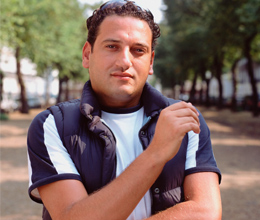Charged with a crime
- Types of crimes
- If you don’t have a lawyer
- Ask for name suppression
- Your plea - guilty or not guilty
If you’re going to court for your first appearance after being charged with a crime (called an offence), the date and time you need to be there will have been given to you at the time of your arrest or it will be on any summons served on you.
If you’ve already been to court, you’ll have been told the next date you need to come in.
If you’re on bail, the details will be on your Notice of Bail paperwork.
The letter (summons) will tell you:
- your details
- the details of any crime (offence) you’ve been charged with
- the name of the court and date and time you need to appear
- the consequences of failing to attend
- information about appearing in court
- how to get free legal help.
If you’re unsure about when or where to go, talk to your lawyer if you have one or call 0800 COURTS (0800 268 787).
Find out more about criminal procedure [PDF, 312 KB]
You might be able to sign up to get a text message reminder sent to you the day before your court appearance.
Find out more about text message reminders
Types of crimes
Crimes (offences) are put into 4 categories depending on the maximum penalty for that offence and how serious they are. The categories decide:
- the court you’ll appear in
- the type of trial you’ll have
Category 1 offences are usually infringements and offences where there is only a fine imposed and are dealt with in the District Court. Category 4 offences, such as murder and manslaughter usually have a jury trial in the High Court.
Find out more about offence categories
If you don’t have a lawyer
You should talk to a lawyer if you’ve been charged with a crime (an offence). To find a lawyer, you can:
- ask friends, family or other people you trust to recommend one
- search on the NZ Law Society’s website(external link)
- find free community legal help
- talk to the duty lawyer at court if it’s your first appearance for that charge and you don’t have a lawyer.
If you have any questions about what happens in court, ask your lawyer (if you have one).
In court a lawyer can speak on your behalf and represent you. If you have questions or want the judge to know something, you should talk about this with your lawyer before going into the court room or during a break.
Help on your first day in court
If you’ve been charged with a crime (an offence) and don’t have a lawyer, you can get help from the duty lawyer on your first day in court. They’re also called duty solicitors.
Find about more about duty lawyers
If you can’t afford a lawyer, you may be able to get legal aid. If you don’t have a lawyer you can ask the duty lawyer about legal aid.
Ask for name suppression
Court hearings in New Zealand are usually open to the public.
Name suppression means that a person’s name and/or details that could identify them can’t be published (for example, the person’s name can’t be published in a newspaper article about the case).
If you think you want to apply for name suppression, discuss this with your lawyer.
Your plea - guilty or not guilty
When you appear in court, you‘ll be required to tell the court if you’re guilty or not guilty. This is called entering your plea. The court will read out the offence (the crime) you are charged with and ask you if you plead guilty or not guilty. You or your lawyer will then tell the court what your plea is.
In Category 1 cases, you can enter your plea by notice. This means you don’t have to come to court.
Plead guilty
If you plead guilty, you might be sentenced straight away or at another time. Sentencing is when the court decides what will happen to you. For example, if you’ll need to pay a fine, do community work or go to prison.
If you accept responsibility for your crime, you may be able to get police diversion. You or your lawyer can ask the police prosecutor. If you get diversion and complete the conditions, the charges will be dropped and won’t be included on your criminal record. Diversion is usually only offered for less serious offences and for first offences.
Find out more about diversion on the Police website(external link)
If you plead guilty to certain offences, you’ll have the chance to have a restorative justice conference before you’re sentenced. This is a meeting between you and your victim, or victims of your crime, if everyone agrees to it, where you can try to put things right. The judge will consider this when deciding your sentence.
Find out more about restorative justice
Plead not guilty
If you plead not guilty, your case will have a hearing on a future date. This might be in front of a judge alone or a judge and a jury. The court will tell you when the next event will happen and when the trial will take place.
You should always keep in touch with your lawyer.
This page was last updated:
